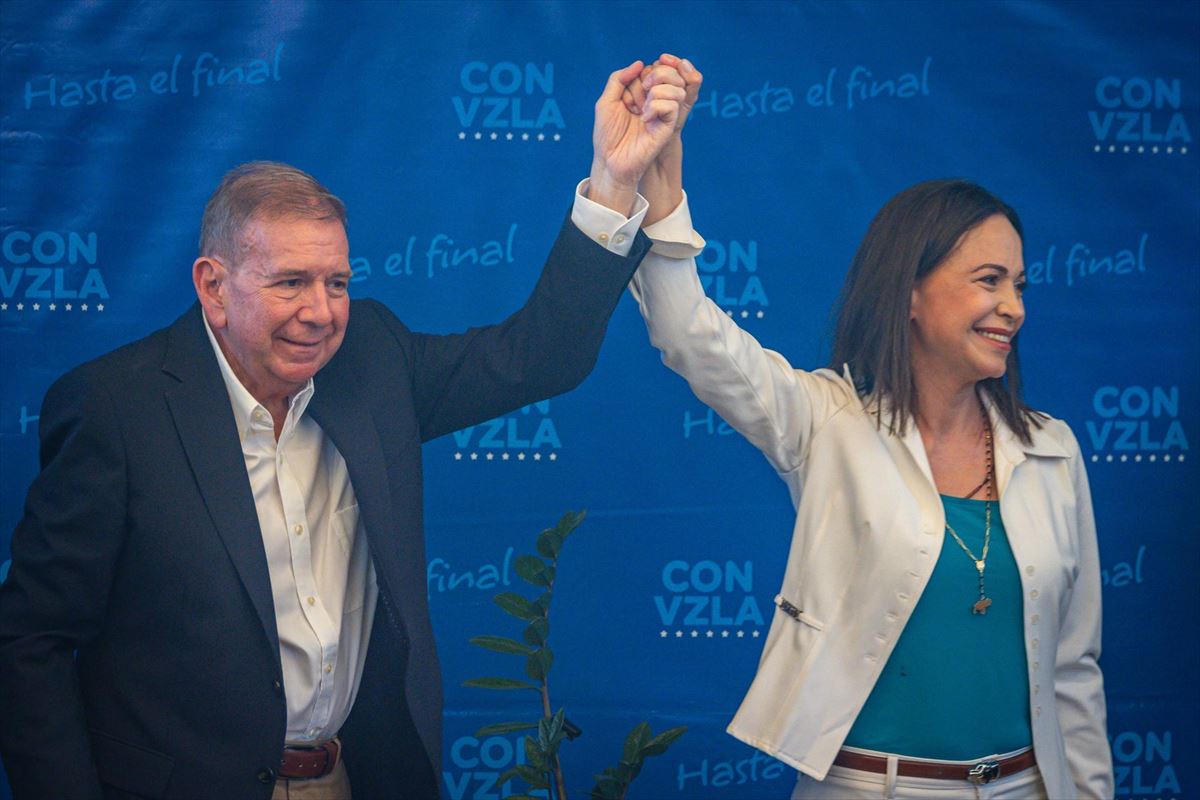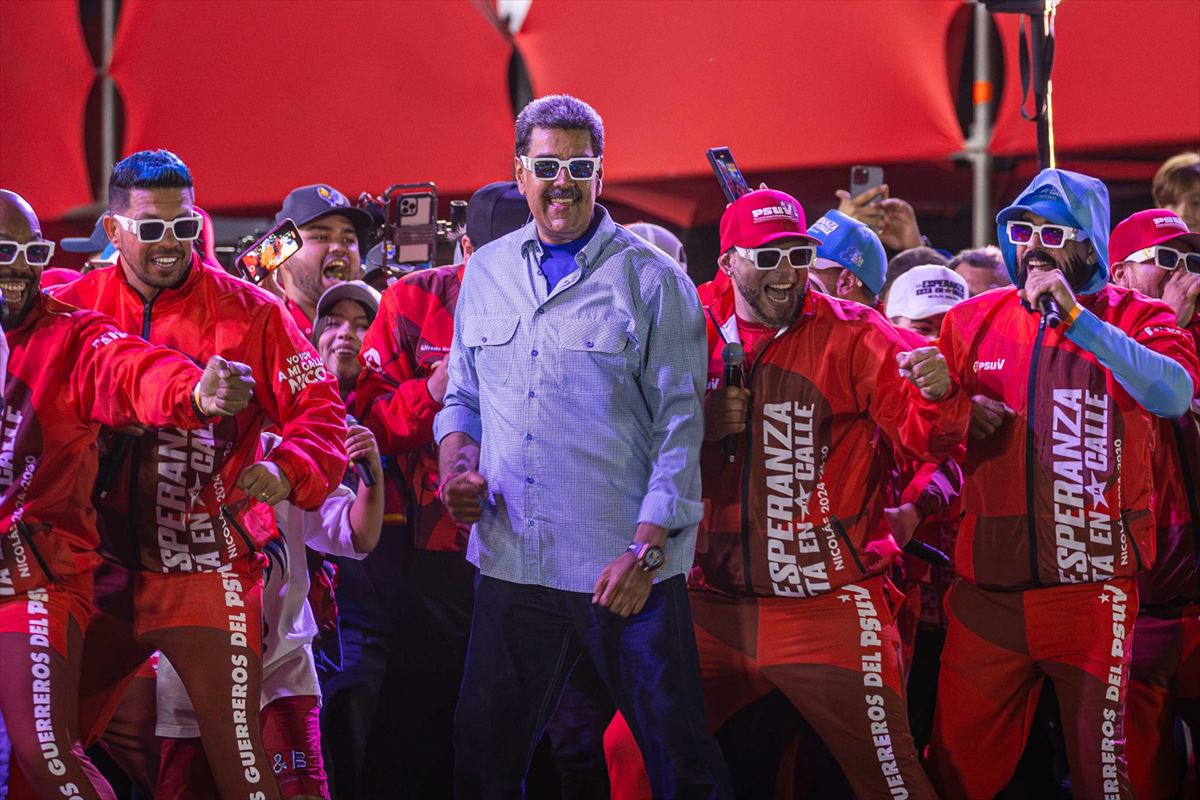The opposition presents a unitary candidacy with Edmundo González at the helm after the disqualification of Maria Corina Machado. Nicolás Maduro, for his part, hopes to renew his mandate for a new term.
Venezuela celebrate this sunday what presidential elections in which Nicholas Maduro however, is trying to come to power for a third term most studies they give the victory to the opposition frontwho had to settle for presenting the former diplomat Edmundo Gonzalez Urrutia as a candidate after Maria Corina Machadowinner of the primaries, outside disqualified by the Justice Department.
In addition to the president’s party, which has the ambition to ‘come to the table’, nine other candidates are presented, including Unitary platform from González, the one with the best chance of victory, as polls show the other eight candidates receiving no more than 2% of the vote.
If the opposition were to win the elections, they would arrive 25 years after the triumph of the Miraflores Palace Chávez’s Bolivarian Revolutionwho ruled for fourteen years. Chávez enjoyed broad popular support in most elections, but faced several coup attempts in 2002when he even spent four days in jail.
Chavez was diagnosed with cancer and eventually died in March 2013At that point, Maduro, until then his vice president, took over the country on an interim basis until elections were held in mid-April. But Maduro is not Chávez, and in that election he won by a narrow margin of 1.5% over opponent Henrique Capriles.
Considered by experts to have a “gray profile,” Maduro does not have the revolutionary background of Chávez, who, in addition to the country’s economic and social crisis, has fostered the rise of dissent.
Amnesty International has used the run-up to the elections to warn of the “serious and massive” human rights violations taking place in Venezuela, where “more than 25% of the population” has fled the country under Maduro’s presidency, according to the NGO, which denounces “dozens of arbitrary arrests, enforced disappearances and torture” against dissidents.

The Barbados Accord
Maduro’s presidency was highly appreciated setback after the 2018 elections, in which the president won with 67.8% of the votes against Henri Falcón (20.9%), but several countries around the world and even the European Union considered the elections “illegitimate”.
After being discredited by the international community, the Barbados Agreement was signed with the opposition in October 2023, in which the conditions for the elections.
This pact – which even led the United States to lift some of its sanctions against Venezuela – concerned the guarantees for the participation of the opposition and the pre-election processhowever, the dissident believes that Maduro has skipped a number of stages, especially due to the disqualification of María Corina Machado and the subsequent impossibility of registering Corina Yoris Villasana as a candidate for the Unitary Platform.
It is precisely at this point that the name of Edmundo González Urrutia comes to the fore, a former Venezuelan diplomat – ambassador to Algeria (1991-1993) and Argentina (1998-2002) – who has promised the release of economic political prisoners, recovery, the stabilization of a heavily devalued bolivar and the fight against inflation and insecurity.
González is considered a centrist politician and has expressed his support for public services, and he has always proven thisopen to consensus over partisan ideology. As for a possible victory in Sunday’s elections, always has advocated a “negotiation process” for the transfer of powers from Maduro.

A PP delegation is expelled from Venezuela because it does not have official permission
A delegation of PP parliamentarians and senators have been expelled from Venezuela, after he tried to enter the South American country without official permission.
According to members of the delegation, they were invited by the Venezuelan opposition to observe Sunday’s elections. However, they did not have the necessary permit. Nevertheless, they traveled to Caracas this Friday, knowing that their entry into the country would not be accepted. The same thing happened to other delegations from other countries, also invited by the opposition.
Tomorrow 1,280 Venezuelans are called to vote at the polling station in Bilbao
On the other hand, 1,280 Venezuelan citizens living in the Basque Country are being called to vote tomorrow at the Bilbao polling station.
The platform of Venezuelans living in our country denounces that there should actually be 25,000 and asks for the support of the international community to ensure the counting of the votes and guarantee the outcome of the elections.
Source: EITB
I’m Wayne Wickman, a professional journalist and author for Today Times Live. My specialty is covering global news and current events, offering readers a unique perspective on the world’s most pressing issues. I’m passionate about storytelling and helping people stay informed on the goings-on of our planet.
